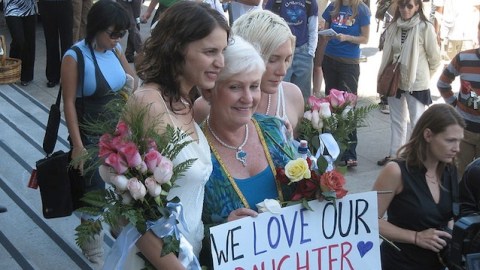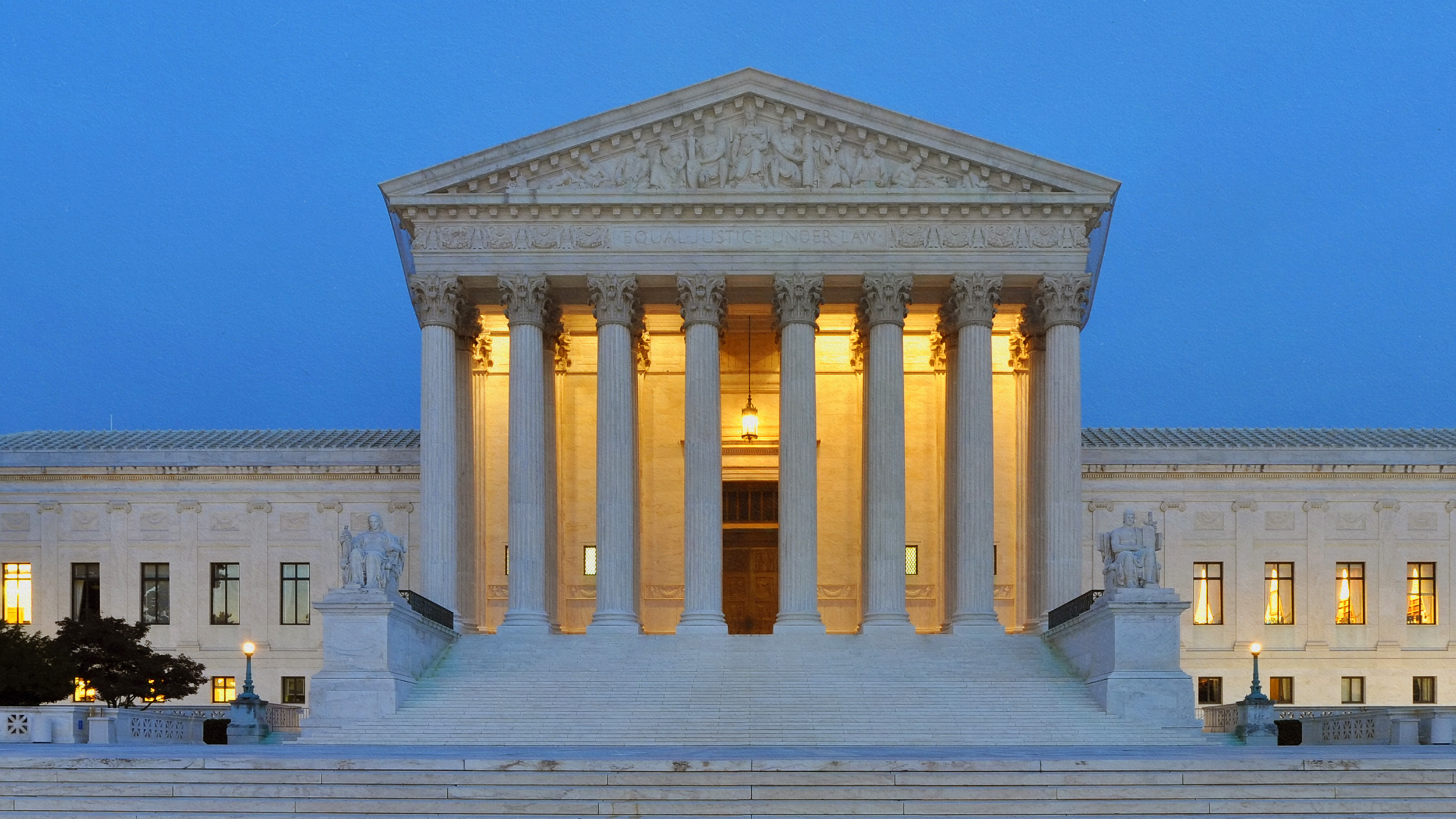The Weak Case Against Same-Sex Marriage

The legal fight over same-sex marriage in federal courts is just beginning, and the outcome is far from certain. But in the aftermath of Judge Vaughn Walker’s ruling overturning California’s Proposition 8 banning same-sex marriage, what’s striking is just how weak the legal arguments for upholding bans on same-sex marriage are.
Defenders of same-sex marriage bans have to explain why people should not be allowed to marry whomever they choose. They have to explain why the law should discriminate between potential marriage partners solely on the basis of their gender. And they have to do it without relying on private moral or religious judgments about what is acceptable behavior.
The truth is that it will be hard to reconcile any ban on same-sex marriage with the Equal Protection Clause of the Fourteenth Amendment, which says that no state can “deny to any person within its jurisdiction the equal protection of its laws.” The amendment was attached to the Constitution in 1868 in response to the Black Codes enacted in many southern states limiting the rights of blacks to own property or enter contracts. The courts have ruled that under the Equal Protection Clause, laws that infringe a fundamental right on the basis of racial or ethnic identity have to meet a very high “strict scrutiny” standard that requires that they be “narrowly tailored” to serve a “compelling” government interest. Laws that make distinctions on the basis of gender are generally required to meet a weaker, but still stringent “exacting scrutiny” standard, that requires the government to show they serve an “important” government interest.
On the basis of the Equal Protection Clause—and the Fifth Amendment’s Due Process Clause, which has been interpreted as implicitly guaranteeing equal protection—the Supreme Court decided in Loving v. Virginia in 1967 that laws banning interracial marriage were unconstitutional. In his decision, Justice Earl Warren wrote that
Marriage is one of the “basic civil rights of man,” fundamental to our very existence and survival.To deny this fundamental freedom on so unsupportable a basis as the racial classifications embodied in these statutes, classifications so directly subversive of the principle of equality at the heart of the Fourteenth Amendment, is surely to deprive all the State’s citizens of liberty without due process of law. The Fourteenth Amendment requires that the freedom of choice to marry not be restricted by invidious racial discrimination. Under our Constitution, the freedom to marry, or not marry, a person of another race resides with the individual and cannot be infringed by the State.
To deny same-sex couples this fundamental right, defenders of same-sex marriage bans must show that denying people the right to marry others on the basis of their gender is not like denying them the right to marry others on the basis of their race, and that there is some compelling reason to do so.
While it’s true that many people think of marriage as fundamentally an institution involving a man and a woman—almost by definition—it’s hard to find legal reasons why that should be the case. The case against same-sex marriage generally involves bizarre and elaborate handwaving to cover a lack of coherent arguments. It generally depends on the idea that allowing gays to marry will—for some unspecified reason—weaken the institution of marriage for straight couples. And this, defenders argue, will—for some other vague and difficult to articulate reason—have all sorts of dire consequences for society and even human civilization.
In the Christian Science Monitor, for example, Sam Schulman argues that marriage is not primarily for the benefit of “couples in love” who want “to share a life and a household.” Rather, he says, the real purpose of marriage is to protect “a woman’s sexuality and her human liberty from determined assault by men who would turn her into a slave, a concubine – something less than fully human.” But—even setting aside that historically some forms of marriage have had precisely the effect of turning women into concubines—he doesn’t say just how allowing same-sex couples would weaken the institution for marriage. In the same way, at the trial Charles Cooper, the lead attorney for the defense, argued that because of marriage’s procreative purpose restricting marriage to heterosexual couples is “fundamental to the survival of the human race.” But Cooper never says why letting gay people get married would undermine marriage’s purpose or bring about the destruction of the human race. When pressed for evidence, he told the judge, “You don’t have to evidence of this.”
Without evidence all these claims are simply empty assertions. When, like Ross Douthat, you give up these vague claims, what you’re left with is—as Lindsay Beyerstein writes elsewhere in Big Think—little more than an aesthetic preference for relationships between “two sexually different human beings.” That’s not enough. It’s not the role of the courts to rule on private moral or aesthetic judgments. As Glenn Greenwald says, opponents of same-sex marriage are entitled to believe that certain relationships are superior to others. But they “can’t misuse secular law to institutionalize those views or coerce others who don’t accept them into having their legal rights restricted based on them.”
None of this means that the Supreme Court will necessarily uphold Judge Walker’s ruling. As David Cole writes, the conventional wisdom is what the court decides will come down to how Justice Anthony Kennedy votes. While Justice Kennedy wrote the decisions in both Romer v. Evans—striking down a California law allowing discrimination on the basis of sexual orientation—and Lawrence v. Texas—overturning a law against sodomy between same-sex partners—he has also said that whether same-sex marriage can be banned is an open question. And so far the Supreme Court has avoided applying even the exacting scrutiny standard to discrimination on the basis of sexual orientation.
Nevertheless, support for same-sex marriage continues to grow. Recently, for the first time, a serious poll found that more that 50% of the population believes the Constitution should protect same-sex marriage. Whatever their private opinions, judges are aware of how their decisions will be viewed, and are unlikely to want to issue a ruling that is be overturned ten years later. And the legal arguments are compelling. Stephen Colbert may have summarized Walker’s ruling best when—as part of gag dramatizing how sad it would be not be allowed to marry the person you love—Colbert said, “It’s as if the judge is saying… that there’s no such thing as gay marriage, there’s only marriage, and that gay people have the same right to it as anyone else.”





